
African American Classics
Non-fiction, memoir, novels, short stories, and poetry by Black writers that reveal the human universal through the African American particular, curated for Penguin Classics by General Editor Henry Louis Gates, Jr.
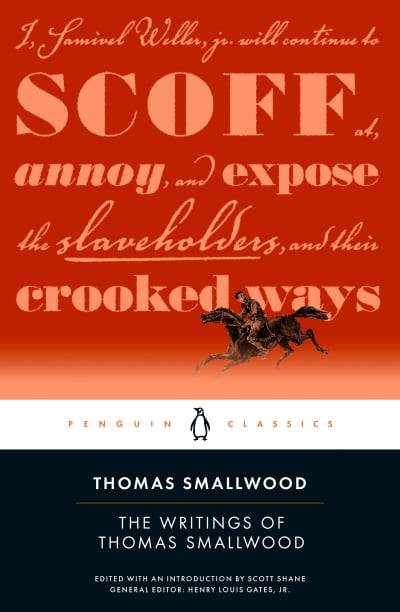
The Writings of Thomas Smallwood
Thomas Smallwood, Scott Shane, Scott Shane, Henry Louis Gates, Jr.
Thomas Smallwood was a shoemaker by day and an organizer of mass escapes from slavery by night. Twelve years after purchasing his freedom from slavery, Smallwood took to the press and, over a 16-month stretch starting in 1842, pseudonymously published newspaper dispatches ridiculing and excoriating enslavers by name and offering sobering reflections on the depravity of slavery. With the pen that Smallwood called his “lash,” he leveraged mockery to flip the oppressive racial power structure of America. These dispatches, in which Smallwood was the first to use "underground railroad" in print, are the only accounts of escapes to be published in real time, imbuing Smallwood’s subversive wit with urgency and defiance. His 1851 memoir is prescient on the United States' tormented entanglement with race.
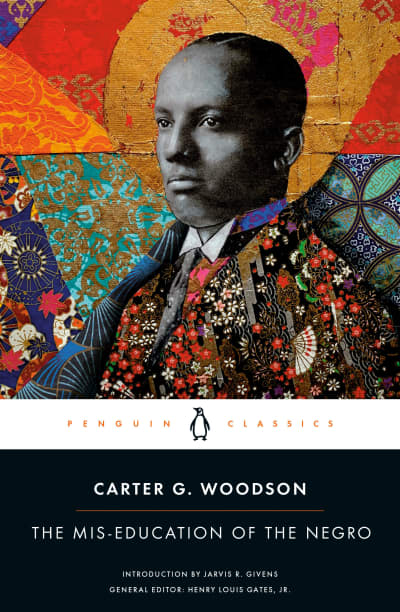
The Mis-education of the Negro
By Carter G. Woodson, Introduction by Jarvis R. Givens
The most influential work by “the father of Black history,” reflecting the long-standing tradition of anti-racist teaching pioneered by African American educators
The Mis-education of the Negro (1933) is Woodson’s most popular classic work of Black social criticism, drawing on history, theory, and memoir. As both student and teacher, Woodson witnessed distortions of Black life in the history and literature taught in schools and universities. He identified a relationship between these distortions in curriculum and the violence circumscribing Black life in the material world, declaring, “There would be no lynching if it did not start in the schoolroom.” Woodson’s primary focus was the impact dominant modes of schooling had on Black youth. This systematic process of mis-education undermined Black people’s struggles for freedom and justice, and it was an experience that scholars before and after Woodson recognized and worked to challenge.
Woodson argued that students, teachers, and leaders needed to be educated in a manner that was accountable to Black experiences and lived realities, both past and present. This edition includes an appendix of selected letters and articles by Woodson, and Suggestions for Further Reading.
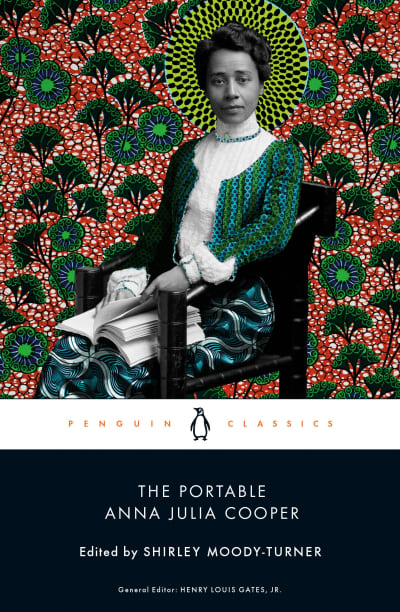
The Portable Anna Julia Cooper
Edited by Shirley Moody-Turner
A collection of essential writings from the iconic foremother of Black women's intellectual history, feminism, and activism
The Portable Anna Julia Cooper brings together, for the first time, Anna Julia Cooper's major collection of essays, A Voice from the South, along with several previously unpublished poems, plays, journalism and selected correspondences, including almost thirty letters between Anna Julia Cooper and W. E. B. Du Bois. The Portable Anna Julia Cooper will introduce a new generation of readers to a witty, courageous, and inspiring educator, public intellectual, and community activist whose visionary insights and eloquent prose underlie some of the most important developments in modern American intellectual thought and African American social and political organizing. Recognized as an iconic foremother of Black women's intellectual history and activism, Cooper (1858-1964) penned one of the most forceful and enduring statements of Black feminist thought to come of out of the nineteenth century. Attention to her work has grown exponentially over the years, and her writings on the centrality of Black girls and women have proved especially prescient today.
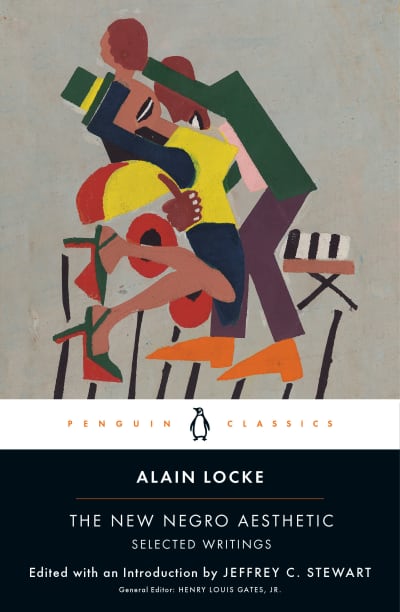
The New Negro Aesthetic
By Alain Locke, Edited with an Introduction by Jeffrey C. Stewart
Harlem Renaissance philosopher Alain Locke’s most influential essays on the Black arts as an emancipatory platform for Black people and America, edited by his Pulitzer Prize–winning biographer
Wrestling with the idea of the Negro as America’s most vexing problem, Locke asked the question—how shall Black people think of themselves? Rather than as a “problem,” Locke argued African Americans should see themselves as artists whose African-derived creativity was the answer to America’s long struggle to foster an identity for itself in world culture. Controversially, Locke, a queer Black intellectual, recommended that Black artists turn away from trying to answer racism in their art and instead develop an art of catharsis that uncovered the inner life of Black people as a rich archive of Beauty and self-love. For Locke, the New Negro was the iterative African American who continually updated Black identity through the arts and created a beautiful alternative to the dominant view not only of Black people but of America itself.
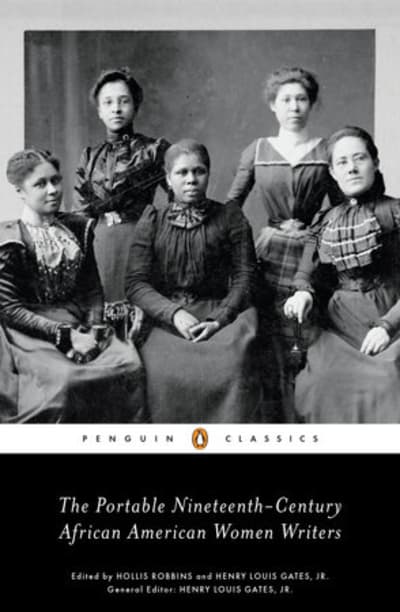
The Portable Nineteenth-Century African American Women Writers
Edited by Hollis Robbins and Henry Louis Gates, Jr.
A landmark collection documenting the social, political, and artistic lives of African American women throughout the tumultuous nineteenth century. Named one of NPR's Best Books of 2017.
The Portable Nineteenth-Century African American Women Writers is the most comprehensive anthology of its kind: an extraordinary range of voices offering the expressions of African American women in print before, during, and after the Civil War. Edited by Hollis Robbins and Henry Louis Gates, Jr., this collection comprises work from forty-nine writers arranged into sections of memoir, poetry, and essays on feminism, education, and the legacy of African American women writers. Many of these pieces engage with social movements like abolition, women’s suffrage, temperance, and civil rights, but the thematic center is the intellect and personal ambition of African American women. The diverse selection includes well-known writers like Sojourner Truth, Hannah Crafts, and Harriet Jacobs, as well as lesser-known writers like Ella Sheppard, who offers a firsthand account of life in the world-famous Fisk Jubilee Singers. Taken together, these incredible works insist that the writing of African American women writers be read, remembered, and addressed.
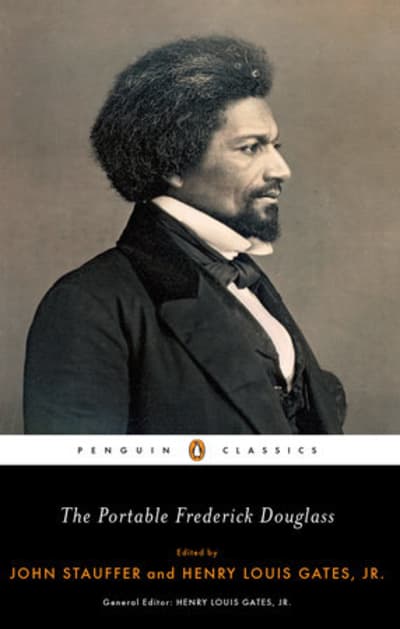
The Portable Frederick Douglass
Edited by John Stauffer and Henry Louis Gates
A collection of the seminal writings and speeches of a legendary writer, orator, and civil rights leader
This compact volume offers a full course on the remarkable, diverse career of Frederick Douglass, letting us hear once more a necessary historical figure whose guiding voice is needed now as urgently as ever. Edited by renowned scholar Henry Louis Gates, Jr., and Pulitzer Prize–nominated historian John Stauffer, The Portable Frederick Douglass includes the full range of Douglass’s works: the complete Narrative of the Life of Frederick Douglass, as well as extracts from My Bondage and My Freedom and Life and Times of Frederick Douglass; The Heroic Slave, one of the first works of African American fiction; the brilliant speeches that launched his political career and that constitute the greatest oratory of the Civil War era; and his journalism, which ranges from cultural and political critique (including his early support for women’s equality) to law, history, philosophy, literature, art, and international affairs, including a never-before-published essay on Haitian revolutionary Toussaint L’Ouverture.
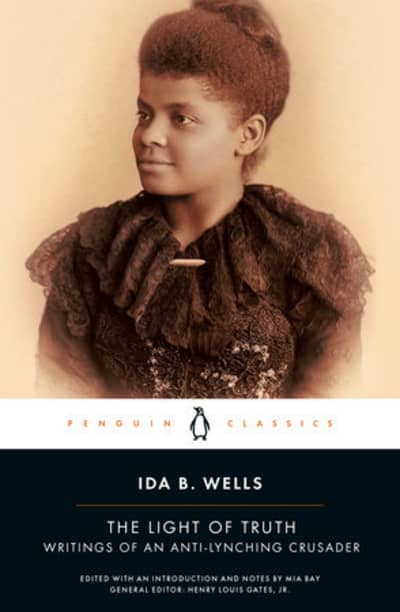
The Light of Truth
By Ida B. Wells, Edited with an Introduction by Mia Bay
The broadest and most comprehensive collection of writings available by an early civil and women’s rights pioneer
Seventy-one years before Rosa Parks’s courageous act of resistance, police dragged a young Black journalist named Ida B. Wells off a train for refusing to give up her seat. The experience shaped Wells’s career, and—when hate crimes touched her life personally—she mounted what was to become her life’s work: an anti-lynching crusade that captured international attention.
This volume covers the entire scope of Wells’s remarkable career, collecting her early writings, articles exposing the horrors of lynching, essays from her travels abroad, and her later journalism. The Light of Truth is both an invaluable resource for study and a testament to Wells’s long career as a civil rights activist.
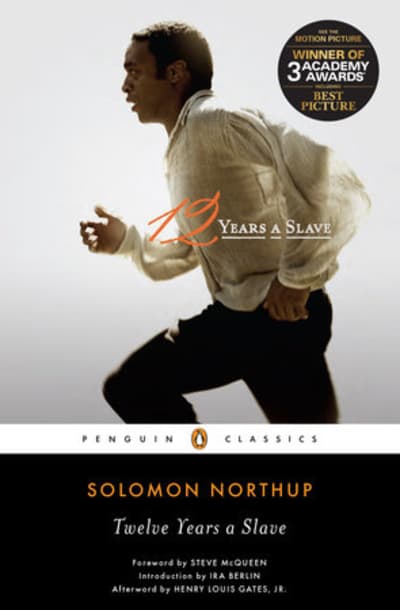
Twelve Years a Slave
By Solomon Northup, Foreword by Steve McQueen, Introduction by Ira Berlin
Now the major motion picture that won the 2014 Academy Award for Best Picture, starring Chiwetel Ejiofor, Michael Fassbender, and Lupita Nyong’o, and directed by Steve McQueen
Perhaps the best written of all the slave narratives, Twelve Years a Slave is a harrowing memoir about one of the darkest periods in American history. It recounts how Solomon Northup, born a free man in New York, was lured to Washington, D.C., in 1841 with the promise of fast money, then drugged and beaten and sold into slavery. He spent the next twelve years of his life in captivity on a Louisiana cotton plantation.
After his rescue, Northup published this exceptionally vivid and detailed account of slave life. It became an immediate bestseller and today is recognized for its unusual insight and eloquence as one of the very few portraits of American slavery produced by someone as educated as Solomon Northup, or by someone with the dual perspective of having been both a free man and a slave.
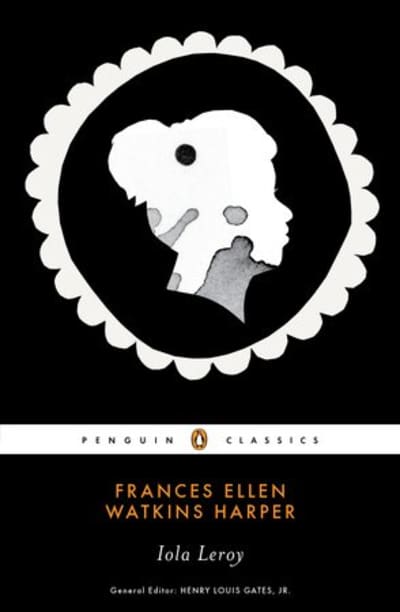
Iola Leroy
By Frances Ellen Watkins Harper, Introduction by Hollis Robbins
A landmark account of the African American experience during the Civil War and its aftermath
First published in 1892, this stirring novel by the great writer and activist Frances Harper tells the story of the young daughter of a wealthy Mississippi planter who travels to the North to attend school, only to be sold into slavery in the South when it is discovered that she has Negro blood. After she is freed by the Union army, she works to reunify her family and embrace her heritage, committing herself to improving the conditions for Blacks in America.
Through her fascinating characters-including Iola's brother, who fights at the front in a colored regiment-Harper weaves a vibrant and provocative chronicle of the Civil War and its consequences through African American eyes in this critical contribution to the nation's literature.
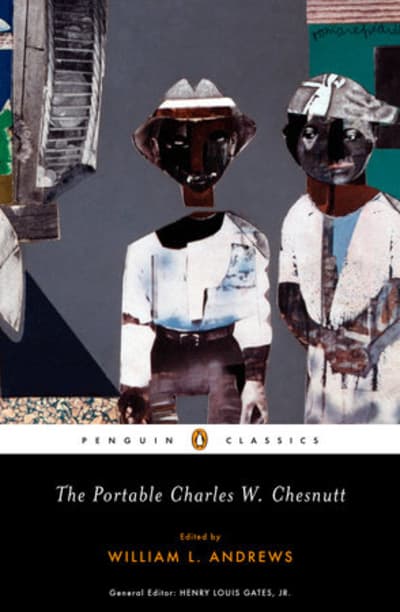
The Portable Charles W. Chesnutt
By Charles W. Chesnutt, Introduction by William L. Andrews
A collection from one of our most influential African American writers
An icon of nineteenth-century American fiction, Charles W. Chesnutt, an incisive storyteller of the aftermath of slavery in the South, is widely credited with almost single-handedly inaugurating the African American short story tradition and was the first African American novelist to achieve national critical acclaim. This major addition to Penguin Classics features an ideal sampling of his work: twelve short stories (including conjure tales and protest fiction), three essays, and the novel The Marrow of Tradition. Published here for the 150th anniversary of Chesnutt's birth, The Portable Charles W. Chesnutt will bring to a new audience the genius of a man whose legacy underlies key trends in modern Black fiction.
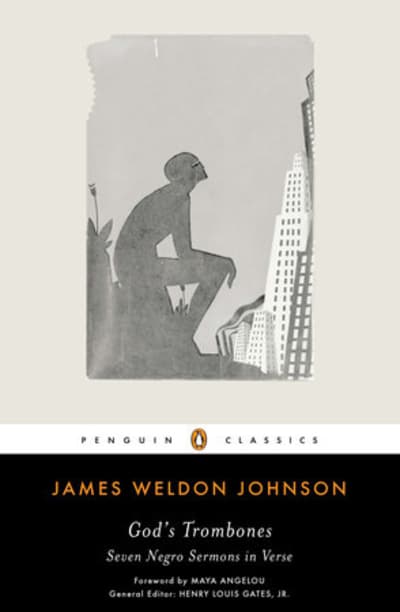
God's Trombones
By James Weldon Johnson, Introduction by Maya Angelou
Introduced by Maya Angelou, the inspiring sermon-poems of James Weldon Johnson
James Weldon Johnson was a leading figure of the Harlem Renaissance, and one of the most revered African Americans of all time, whose life demonstrated the full spectrum of struggle and success. In God's Trombones, one of his most celebrated works, inspirational sermons of African American preachers are reimagined as poetry, reverberating with the musicality and splendid eloquence of the spirituals. This classic collection includes "Listen Lord (A Prayer)," "The Creation," "The Prodigal Son," "Go Down Death (A Funeral Sermon)," "Noah Built the Ark," "The Crucifixion," "Let My People Go," and "The Judgment Day."

Henry Louis Gates, Jr.
General Editor
Henry Louis Gates, Jr. is the Alphonse Fletcher University Professor and Director of the Hutchins Center for African & African American Research at Harvard University. Emmy and Peabody Award-winning filmmaker, literary scholar, journalist, cultural critic, and institution builder, Professor Gates has published numerous books and produced and hosted an array of documentary films. The Black Church (PBS) and Frederick Douglass: In Five Speeches (HBO), which he executive produced, have each received Emmy nominations. His latest history series for PBS is Making Black America: Through the Grapevine. Finding Your Roots, Gates’s groundbreaking genealogy and genetics series, is now in its ninth season on PBS.
Gates is a recipient of a number of honorary degrees, including his alma mater, the University of Cambridge. Gates was a member of the first class awarded “genius grants” by the MacArthur Foundation in 1981, and in 1998 he became the first African American scholar to be awarded the National Humanities Medal.
A native of Piedmont, West Virginia, Gates earned his B.A. in History, summa cum laude, from Yale University in 1973, and his M.A. and Ph.D. in English Literature from Clare College at Cambridge in 1979, where he is also an Honorary Fellow. A former chair of the Pulitzer Prize board, he is a member of the American Academy of Arts and Letters and serves on a wide array of boards, including the New York Public Library, the NAACP Legal Defense Fund, the Aspen Institute, the Whitney Museum of American Art, Library of America, and The Studio Museum of Harlem. In 2011, his portrait, by Yuqi Wang, was hung in the National Portrait Gallery in Washington, D.C. He is a member of the Phi Beta Kappa honor society.
